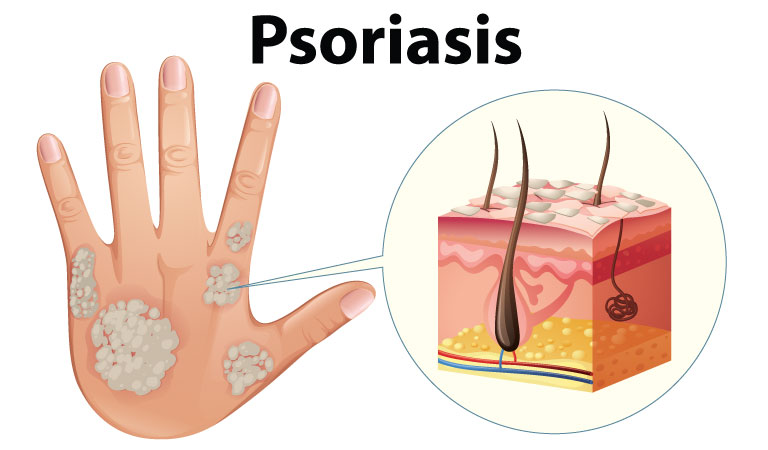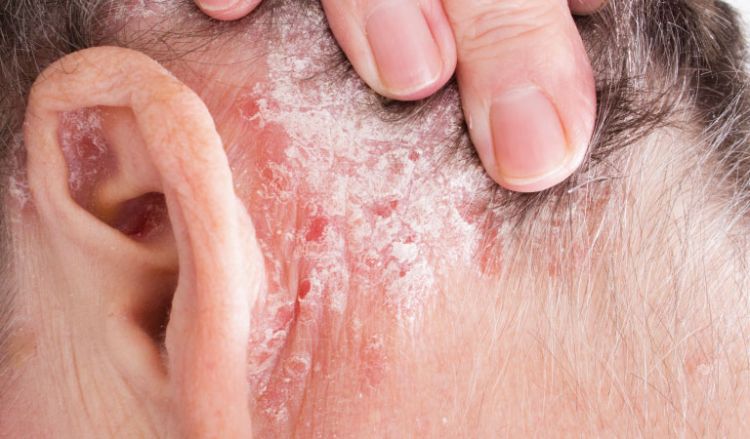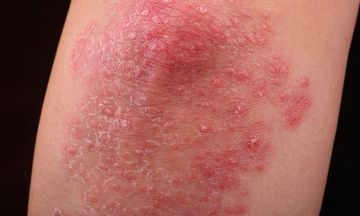Know the 10 complications of psoriasis
Did you know that psoriasis skin disease can have consequences if left untreated? Psoriasis is an autoimmune inflammatory disease. It causes lifestyle challenges that can be difficult to cope with. This leads to additional symptoms like depression. Keep reading to find out about some of the problems that may occur alongside this condition.
Pustular psoriasis:
Pustular psoriasis is a severe form of psoriasis that appears in psoriasis patients. In a case study of a patient with pustular psoriasis, researchers noted that the condition can increase the risk of the life-threatening complications such as pneumonitis (a lung inflammation), heart failure and hepatitis (liver inflammation). The patient who was the focus of the study had symptoms such as pustular skin lesions, pitted nail beds, fever and chills, muscle weakness, a rapid heartbeat, tremors and difficulty breathing. (Source: NCBI)
Psoriatic arthritis:
10%-30% of psoriasis patients may develop psoriatic arthritis. It usually appears in people of 30-50 years old. 85% of people with this condition first have skin symptoms. (Source: National Psoriasis Foundation) But it can occur before or without dermatological symptoms. Symptoms include fatigue, pain and swelling over the tendons, swollen fingers and toes, reduced mobility, stiffness and pain in one or more joints, pitted nails that may look as if they have a nail fungus and conjunctivitis. There are also different types of psoriatic arthritis. These include spondylitis which affects the spine, enthesitis which occurs where the ligaments or tendons meet the bones and dactylitis which affects the fingers and toes. Around 7% of psoriatic arthritis patients are more likely to develop uveitis, an inflammatory eye disease. (Source: National Psoriasis Foundation)
Eye diseases:
Certain eye diseases are more prominent with psoriasis. The inflammation that affects your skin cells can lead to complications within delicate eye tissue. With psoriasis, you may be more prone to get blepharitis (eyelid inflammation) and conjunctivitis.
Bacterial or fungal infections of the skin:
Celiac disease:
Psoriasis patients are more likely to have antibodies for celiac disease, suggesting that there may be a link between the two. Celiac disease affects around 1% of the general population. But it may be present in up to 4.3% of those with psoriasis. (Source: BMC Medicine) People with celiac disease experience a severe reaction when they consume gluten. Celiac disease and psoriasis stem from dysfunction in the immune system. Some find that avoiding gluten reduces symptoms of psoriasis
Mouth problems:
ome studies have suggested that psoriasis patients are more likely to develop problems with mucous membranes in the oral cavity. This includes fissures in the tongue and lesions in the gums and cheeks. (Source: Research Gate) Psoriasis and mouth problems could stem from similar genetic factors or they might result from exposure to similar triggers such as stress or alcohol.
Body temperature regulations:
Some types of psoriasis affect body temperature regulation. This impacts internal organs like heart and kidneys. (Source: National Psoriasis Foundation) The skin is important for keeping the body temperature stable and problems that affect the skin can also affect temperature, especially with more severe forms, such as erythrodermic and pustular psoriasis.
Psychological and emotional consequences:
Living with psoriasis disease can be difficult. And it can have emotional and social consequences. In a review published in Dermatology and Therapy, researchers describe psoriasis as a common skin condition. And it is associated with high levels of psychological distress and considerable life impact. (Source: NCBI) People who have visible lesions may feel embarrassed by their appearance. This can lead to isolation, depression and anxiety. This can affect areas of life such as relationships, employment and leisure and social activities. Stress and worry can worsen psoriasis symptoms.
Inflammatory bowel disease (IBD):
A recent study found that among women with psoriasis, 10% developed a form of IBD such as Crohn’s disease or ulcerative colitis. (Source: Science Direct) Let your doctor know if you develop IBD symptoms like diarrhea and cramping.
Cancer:
Do you have psoriasis and psoriatic arthritis? Then you have an increased risk of developing certain cancers. In a study, researchers found that people with psoriasis had a 34% increased chance of developing lymphoma. A 15% increased chance of developing lung cancer was also found. And a 12% increased chance of developing nonmelanoma skin cancer was observed. (Source: JAMA Dermatology)
The itchy, inflamed nature of psoriasis can lead to increased scratching of the affected areas. This can introduce bacterial or fungal infections that may become quite serious and even lead to cellulitis or open sores and lesions.

Psoriasis treatment in homeopathy
Psoriasis treatment is available that can help to reduce many of the symptoms and complications of psoriasis and to improve a person’s overall quality of life. Homeopathic medicine helps to stimulate your body’s healing process. It helps to reduce the intensity of the associated complaints.
Book an online appointment and visit the nearest Dr Batra's® homeopathy clinic for a consultation to determine if you have psoriasis and related complications.




